On 14th August 2024, FV Hospital successfully delivered continuing medical education (CME) training programme with addressing “PALLIATIVE CARE AND HOMECARE: Experience from Japan to Viet Nam”. The programme attracted significant interest and participation from doctors at FV Hospital, as well as from various other healthcare institutions in the Ho Chi Minh City area.
Two areas that provide significant benefits for patients.
The programme not only served as an opportunity for doctors to enhance their professional knowledge but also promoted the development of palliative care and homecare services in Vietnam. The training programme provides a platform for healthcare professionals to share practical experiences, thereby optimising treatment methods and delivering higher quality experiences within the healthcare system for the community.
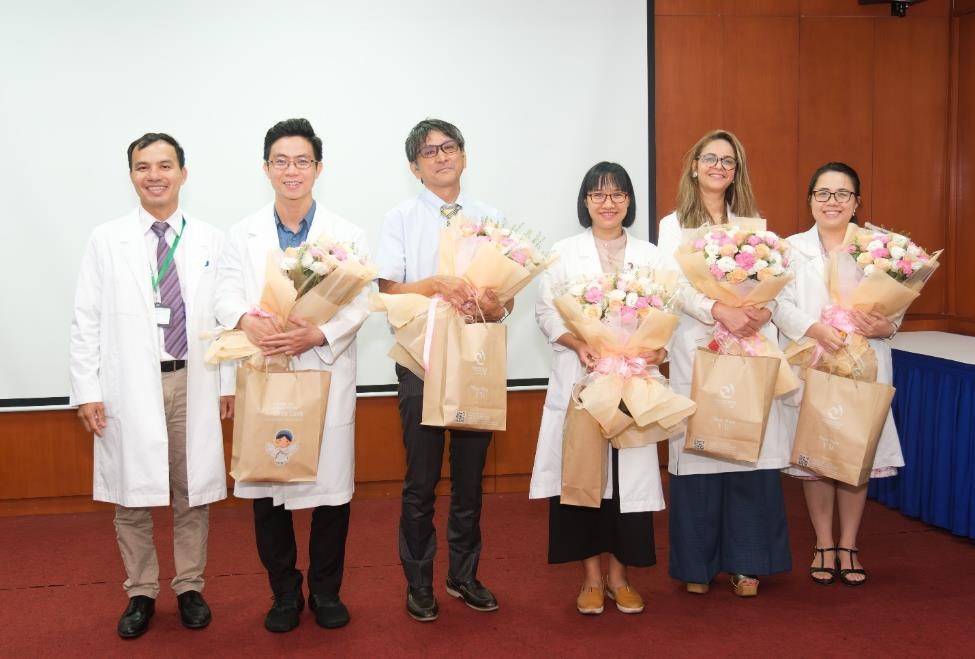
In his opening remarks, Vu Truong Son, MD, MSc., Acting Medical Director of FV Hospital, emphasised the importance of palliative care and the benefits it brings to patients. He shared, “Palliative care does not only focus on medical aspects but also needs to address the economic, psychological, and social relationships surrounding the patient that impact treatment.” Each of these factors play a crucial role in improving the quality of life for patients.
Following the program, Dr Shuji Hiramoto – Director of Peace Home Care Clinic, Department of Oncology and Palliative Care, introduced the healthcare model used in Japan, where the homecare system is highly detailed, structured, and effective. He highlighted the disparity between patients’ desire to receive care at home and the reality where many still pass away in hospitals, a reason that has driven Japan to strongly develop its home care system.
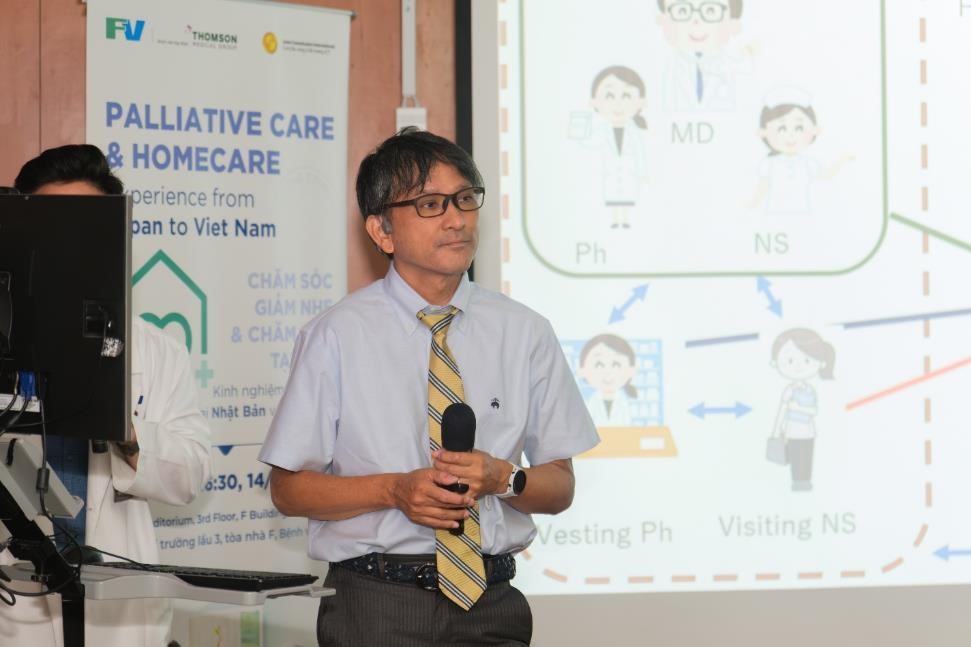
Dr Hiramoto and his colleagues have conducted numerous studies on home healthcare and found that the cost of this service is significantly lower than keeping patients in the hospital. He also proposed several approaches to developing a home care system, such as providing financial, medical, and psychological support for staff; strengthening the system in areas with limited access to healthcare; and creating a collaborative network among staff and hospitals within the same home care system.
On the same topic, Dr Pham Hoang Manh – Pain Specialist, Pain Clinic, FV Hospital shared practical insights from his experience visiting and studying the palliative care system at Kyoto Prefectural University of Medicine (KPUM) in Japan. He emphasised the importance of comprehensive care, including economic and religious factors, that could impact patients’ psychological well-being.
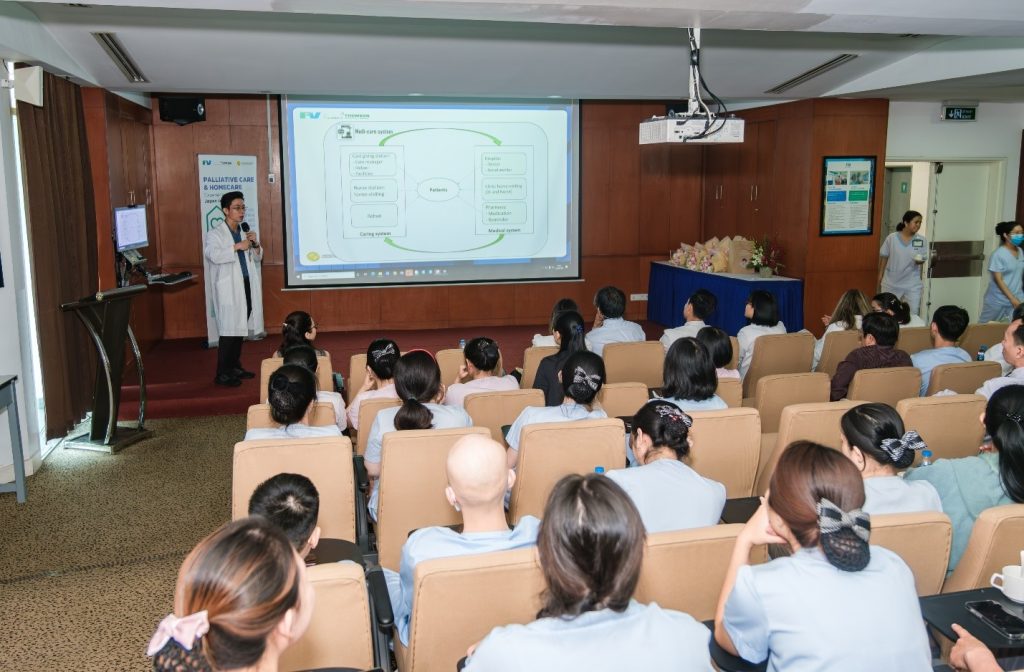
Dr Manh also introduced Japan’s advanced Medi-care system, which offers comprehensive and affordable support for home healthcare. This system provides a full range of services, including personnel and medications, for home care. The well-structured process in Japan and extensive medical training for palliative and homecare further demonstrate the country’s high standing in global healthcare quality rankings.
Connecting palliative care methods across various specialties
In her presentation “The role of radiotherapy in pain management in cancer patients” Dr Basma M’Barek – Oncologist – Head of Hy Vong Cancer Care Centre, FV Hospital, received significant interest for her approach of using radiation therapy to alleviate pain, control bleeding, and reduce vascular compression caused by tumours. Dr Basma noted, “This method is now suitable for most body parts, providing a valuable option for both doctors and patients.” Radiation therapy in palliative care helps reduce inflammation, destroy tumour cells, shrink tumours, and decrease angiogenesis. This therfor minimizies tumour-induced compression that is the cause pain.
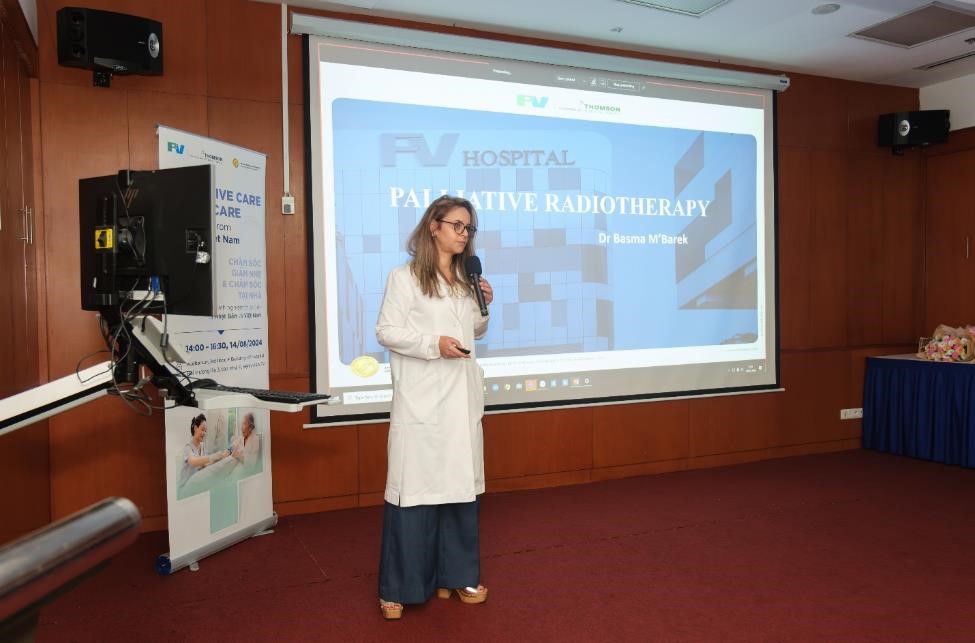
Many studies have proven the effectiveness of this method, with 60% of patients responding to treatment and 50% experiencing complete response, with effects lasting over 3 months. At FV Hospital, radiation therapy is supported by insurance, making it accessible to patients at a lower cost while maintaining its high effectiveness. Dr Basma M’Barek particularly emphasised that in the end stages of cancer, the focus should move from aggressive treatment aimed at prolonging life to ensuring patients have a high quality of life, in comfort with their pain relived.
In the discussion on palliative care and pain management for cancer treatment, Dr Nguyen Nam Binh – Pain Specialist, Pain Clinic, FV Hospital, highlighted that up to 55% of cancer patients face pain and require palliative care. She introduced various pain control methods, including medication, nerve blocks, and other advanced techniques. Dr Binh shared informed the audience “A comprehensive assessment and management of pain will provide an optimal treatment outcome for patients.” Additionally, the Pain Clinic and the Hy Vong Cancer Care Centre will soon establish greater integration of working procedures to enhance pain management and treatment efficacy for cancer patients.
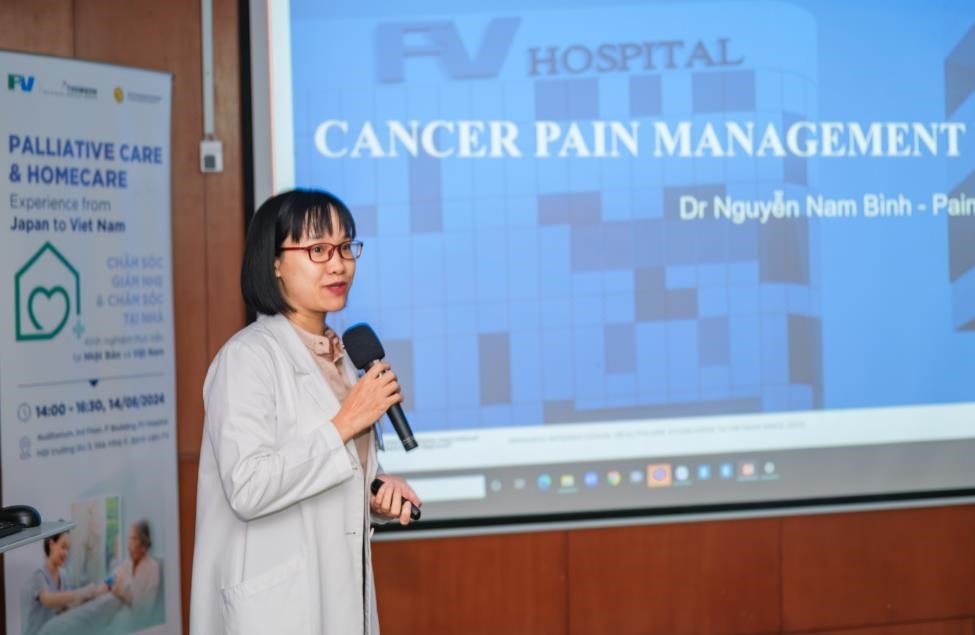
At the end of the programme, Dr Nguyen Huynh Ha Thu – Oncologist, Hy Vong Cancer Care Centre, FV Hospital, presented “Epidural Mixture Infusion: A Solution for Making a Course of Palliative Radiotherapy Possible in Patients with Intractable Pain” This topic will also featured in a poster presentation by Dr Thu at the Malsian ‘ESTRO meets Asia 2024’ conference later this August.
This combined approach helps alleviate pain for patients who do not respond to conventional pain medications, enhancing the effectiveness and prolonging the duration of pain relief. “For patients in so much pain that they cannot maintain a stable position during radiation therapy, this method proves to be very useful,” Dr Ha Thu added.
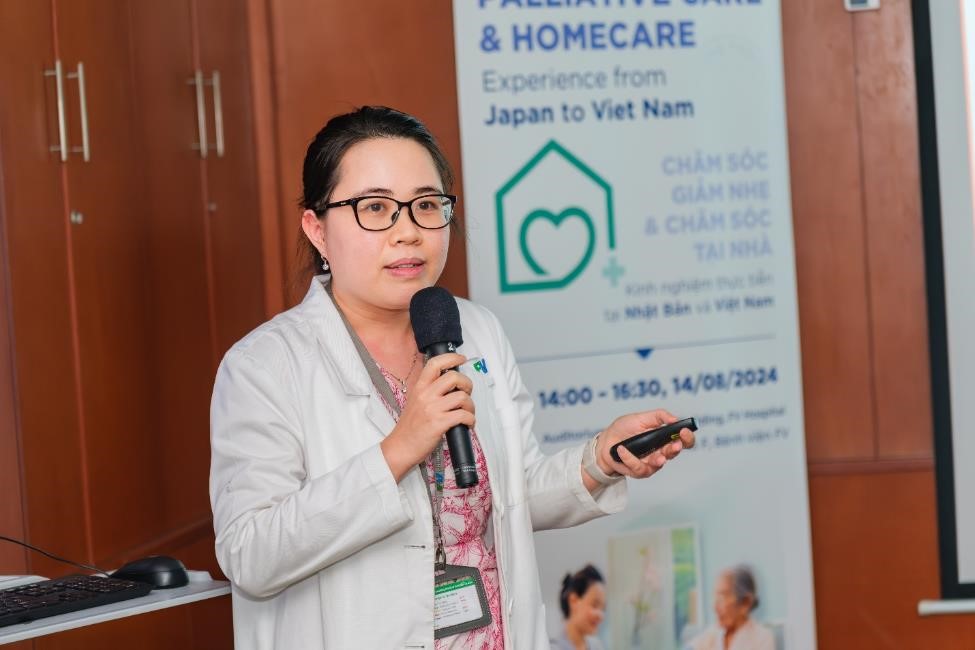
Through the CME training programme ” PALLIATIVE CARE AND HOMECARE: Experience from Japan to Viet Nam”, FV Hospital is confident that the programme has provided valuable knowledge and practical experience in these two areas with significant potential for development in Vietnam. In the near future, FV Hospital will continue to connect with international doctors and experts to offer training courses with new knowledge and advanced techniques, to give Vietnamese patients more opportunities to access modern medical practices from around the world right here in their homeland.

 Vi
Vi 












